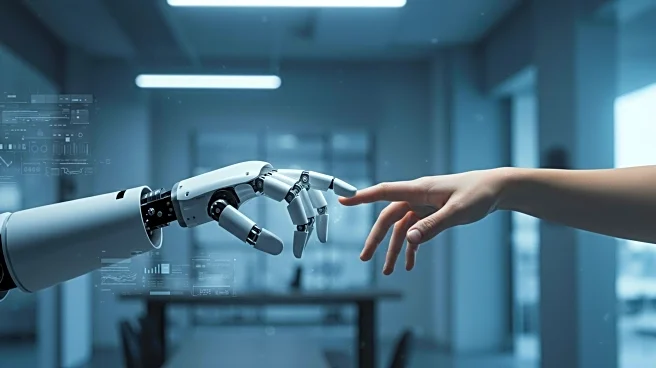What's Happening?
The future workforce is increasingly integrating AI agents to enhance productivity and redefine roles within organizations. AI is being used to execute research tasks, generate campaigns, provide sales guidance, and predict trends, leading to a structural change in work dynamics. Companies are redistributing human effort towards areas requiring creativity, strategic judgment, and emotional intelligence, while AI handles high-volume, routine activities. According to Capgemini, two-thirds of organizations are exploring AI deployment, although many are still in pilot stages. The challenge lies in redesigning workflows to fully integrate AI, rather than applying it to outdated processes.
Why It's Important?
The integration of AI into the workforce represents a significant shift in how organizations operate, potentially leading to increased efficiency and competitive advantage. By leveraging AI for routine tasks, human workers can focus on strategic and creative aspects of their roles, enhancing overall productivity. This collaboration between AI and humans can redefine job roles and responsibilities, creating new opportunities for innovation and growth. Organizations that successfully integrate AI into their workflows will be better positioned to adapt to changing market demands and maintain a competitive edge.
What's Next?
Organizations will continue to explore AI integration, focusing on redesigning workflows to maximize the benefits of AI collaboration. As AI technology advances, companies will need to address challenges related to process readiness and employee training to ensure successful implementation. The future workforce will likely see a greater emphasis on collaboration between AI and humans, with ongoing efforts to optimize this partnership for improved productivity and innovation.









